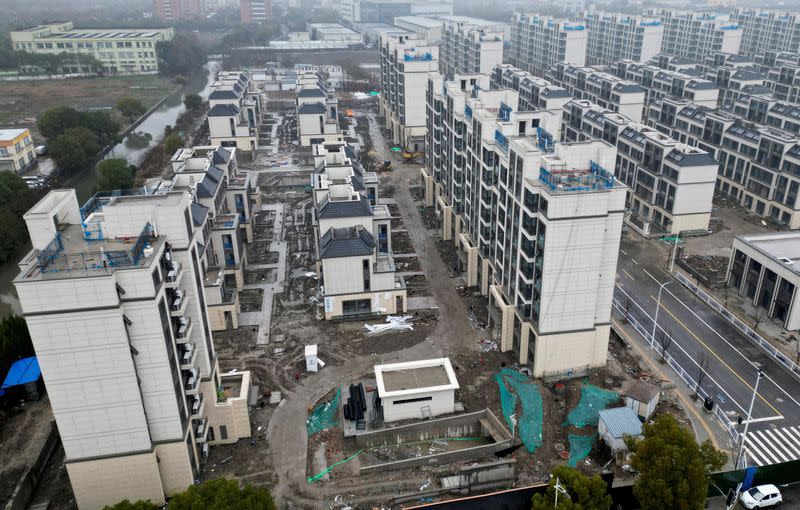Rare bulls in China property market stick to their bets

By Clare Jim
HONG KONG (Reuters) - The few investment houses which are bullish on China's property sector are holding on to their optimistic bets in defiance of a faltering stock market and a dominant view that Beijing's latest support package was not enough.
The positive calls, including from Citi and Bank of America, were made in the lead-up to easing measures announced on May 17, based on expectations the package would offer more than the piecemeal steps taken in the past two years.
Authorities for the first time instructed local governments to buy unsold apartments through state-owned firms, facilitating up to 500 billion yuan ($69 billion) for the purchases, and fuelling expectations that more funds could be made available.
They also further cut downpayment requirements and removed the floor for mortgage rates, stepping up efforts to stabilize the ailing sector after it slipped into a debt crisis in 2021 and sparked many company defaults.
The Hang Seng Mainland Properties Index has lost almost half of its 40% gains made in the lead-up to the May announcement, as doubts set in over the size and effectiveness of the support package. Shares of state-backed developer Vanke retreated 28% after surging 90%.
But the bullish analysts say the central government's prominent role in coordinating the latest measures has actually strengthened their conviction, injecting a rare dose of positivity into a sector that has seen new home sales dropping 40% and company valuations plunging 80% from peaks.
"From a signalling perspective, it was quite positive, that's why we turned more constructive," said Karl Choi, head of Greater China Property Research at Bank of America, who expects home sales of the top 100 developers to stabilise by next year after 40%-50% year-on-year declines in the first four months.
Choi says some shares had rallied faster than warranted by his expectations of a gradual property market recovery, so he is becoming "more selective" on developers for now, while staying positive on the sector longer term.
Citi analyst Griffin Chan raised individual share price targets for property firms this month, most notably by more than 30% for privately-owned CIFI and Longfor. Chan expects to also upgrade his recommendation for the sector as a whole in the future, arguing the latest policies will facilitate a soft landing for the industry.
CLSA upgraded Vanke, among others, from "outperform" to "buy", saying government-led purchases of empty flats would improve the firm's cashflow.
UBS head of China research John Lam, who has been bullish on the sector since January, said the latest steps confirmed "the government's intention of de-stocking," and strengthened his views.
He expected home prices to find a floor by mid-2025.
But recent housing data has been poor and most analysts are not as optimistic about the outlook for the sector.
"The sector is still vulnerable," said Moody’s Analytics economist Harry Murphy Cruise
"That's especially true when considering the state of China's households," he said. "The last few years have been tough, and convincing them to get back into the market will be no mean feat."
One senior executive at a Shanghai-based developer said a turn in fortunes was not even close.
"A recovery could happen after inventories shrink, but the process could take three-to-four years," said the executive, asking for anonymity due to the sensitivity of the matter.
($1 = 7.2554 Chinese yuan renminbi)
(Reporting by Clare Jim; Editing by Marius Zaharia and Shri Navaratnam)

 Yahoo Finance
Yahoo Finance 